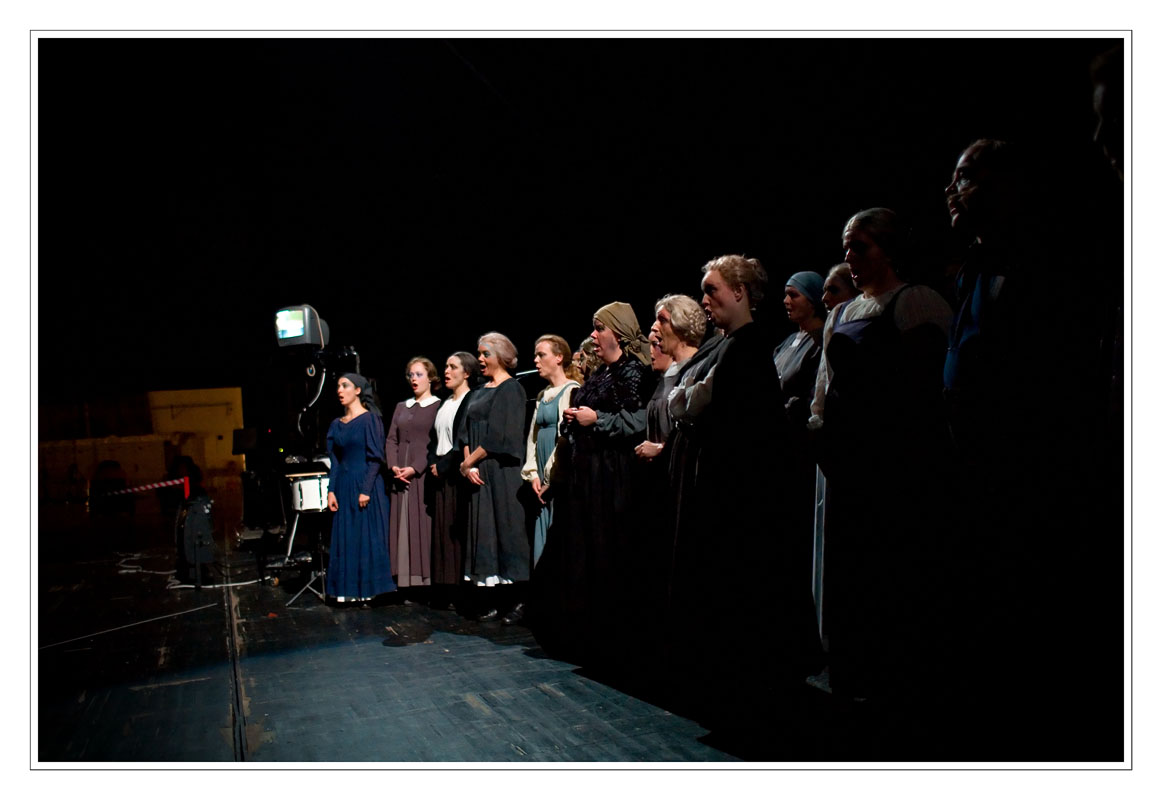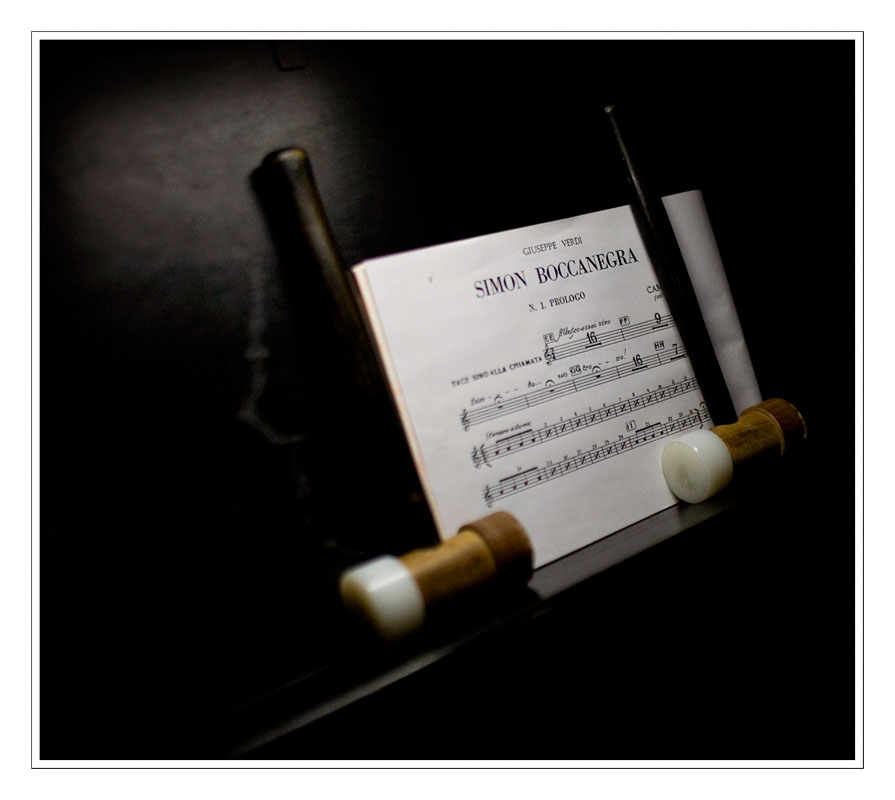Noises off!

*Click for more photos!
Imagine if you will, standing in your living room in the dark with a group of your friends - you are all going to sing along to your favourite CD which you are playing in the kitchen, right at the other end of your flat, BUT you have to be precisely half a second ahead of it. Not only that, there are no lights on in your living room - it is night - and you can't actually hear the CD because, between you and the kitchen, all the doors are closed.Round about you, various other people are moving pieces of furniture and a couple run by adjusting their hastily thrown on clothing. You move down the flat closer to the CD, you sing along again, but you all have to sing so loudly you still can't hear the CD - bravo anyway, you completed your task all the same - exactly half a second ahead of the CD, BUT because you couldn't hear the CD, you may have gone a little flat, almost ending up in a different key altogether! Hey ho, the show goes on, and you all have three minutes to get out of the 1950s outfit and get into the little cocktail number for the next scene, run down to the kitchen, catch the CD on track 15 and sing along infront of 1400 people......
Yesterday evening we had a performance of Simon Boccanegra and whilst the chorus master is responsible for how the chorus sound onstage, he is also responsible for the chorus when they sing offstage, and also for any other "offstage" sounds - sounds that come from the wings of the stage and not from the orchestra pit. In Simon B I have 10 different cues, the first about 10 minutes after the start and the last in the closing bars almost three hours later. Whether it is the singers singing (the People are happy), bells tolling (we're in church), drums rolling (battle is about to commence), trumpets fanfaring (the battle has been won), the gong chimes (somebody died) , or even, as in Lohengrin, a small orchestra - it all has to be conducted to work in sync with the conductor and orchestra out front.
Armed with a small luminous baton (in my case, a rear bicycle light), a box to stand on (so I can be seen), a monitor (so I can see the conductor), an illuminated music stand, and, sometimes, a pair of headphones (so that I CAN hear the orchestra, no matter what), I await the moment. The tricky bit of offstage conducting is the time delay - because of the distance between us and the orchestra out front there can sometimes be a delay of up to a second which means that we backstage have to be singing or playing well ahead of the beat. It is a very strange and often strangely unsettling experience. As musicians we are trained to sing with each other not aginst each other. Hearing the orchestra can also be difficult: may be it's a quiet bit anyway, more usually the set gets in the way and blocks out the sound, or may be technicians are busy getting another bit of the set ready on the sidestage.
Sometimes there are "added sounds" - in our production of Elektra, there are gunshots which the director required to be fired at precise points in the score. Cued by the chorusmaster. Sometimes, the chorusmaster must stand offstage to conduct the chorus while it is onstage, because, for some reason, they are unable to see the conductor "live" or see his beat on a monitor. At the end of Aida I was perched high up on the lighting gallery to relay the final choral entries, as the chorus, by that time, had been raised meters in to the air and our conductor had all but disappeared from view.
Last night, at about 22 43, it was time once again for the 10th cue and the offstage gong and bells solemnly announced the death of the Doge of Genoa, Simon Boccanegra .....

*Click for more photos!
Philip White

0 Comments:
Send en kommentar
<< Home